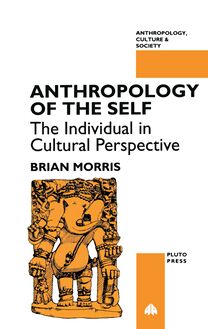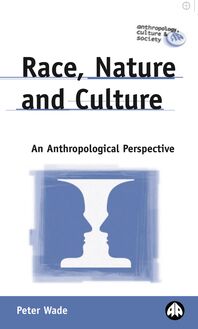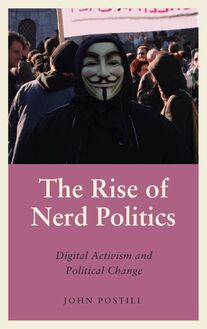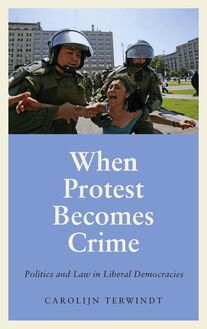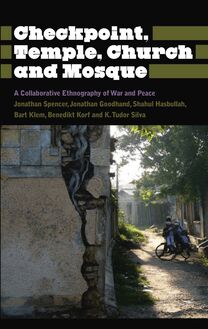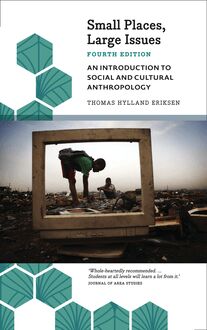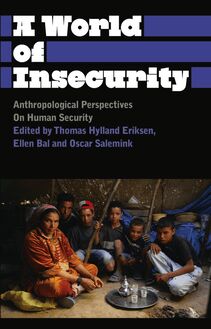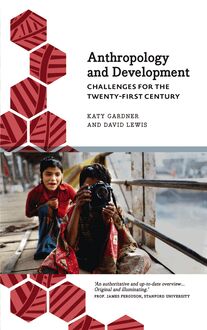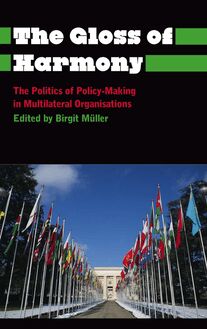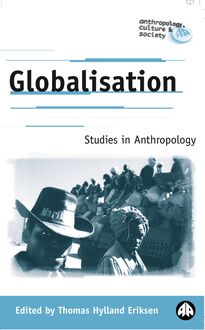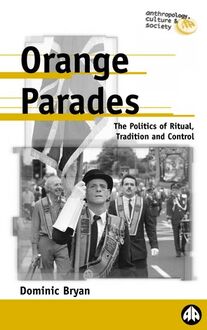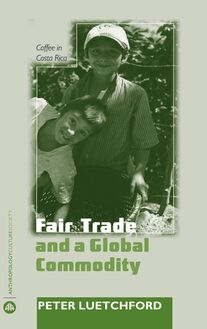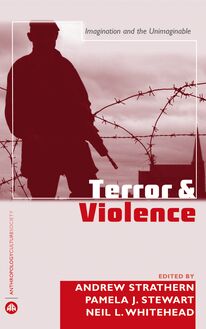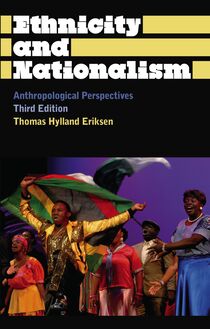-
 Univers
Univers
-
 Ebooks
Ebooks
-
 Livres audio
Livres audio
-
 Presse
Presse
-
 Podcasts
Podcasts
-
 BD
BD
-
 Documents
Documents
-
- Cours
- Révisions
- Ressources pédagogiques
- Sciences de l’éducation
- Manuels scolaires
- Langues
- Travaux de classe
- Annales de BEP
- Etudes supérieures
- Maternelle et primaire
- Fiches de lecture
- Orientation scolaire
- Méthodologie
- Corrigés de devoir
- Annales d’examens et concours
- Annales du bac
- Annales du brevet
- Rapports de stage
La lecture à portée de main
237 pages
English
Découvre YouScribe en t'inscrivant gratuitement
Je m'inscrisDécouvre YouScribe en t'inscrivant gratuitement
Je m'inscris
Obtenez un accès à la bibliothèque pour le consulter en ligne
En savoir plus
En savoir plus
237 pages
English
Obtenez un accès à la bibliothèque pour le consulter en ligne
En savoir plus
En savoir plus

Description
This book explores the balance of power between the state and local communities, with particular reference to societies in the developing world.
Monique Nuijten shows how rituals of bureaucratic power and accusations of corruption give flesh to incredible fantasies, and conspiracy theories among officials, peasants and brokers. At the same time she shows that in this labyrinthine world of bureaucratic obstacles and state control, local agrarian communities manage to find certain room for autonomy.
Drawing on her extensive fieldwork in Mexico, Nuijten draws wide conclusions that can be applied to many societies. Providing a detailed ethnography, she focuses on various themes, including a theoretical anthropology of state power; families and factionalism after agrarian reform; local organisation; questions of law; corruption; and development theory.
1. An Anthropology Of Power And The State
2. Factionalism And Family After The Agrarian Reform
3. Politics And Local Organisation
4. Illegality And The Law
5. The Lost Land 1: The Priest And The Lawyer
6. The Lost Land 2: The Engineers
7. Inside The ‘Hope-Generating Machine’
8. Development Discourses And Participatory Approaches
9. Corruption, Order And The Idea Of The State
References
Index
Monique Nuijten shows how rituals of bureaucratic power and accusations of corruption give flesh to incredible fantasies, and conspiracy theories among officials, peasants and brokers. At the same time she shows that in this labyrinthine world of bureaucratic obstacles and state control, local agrarian communities manage to find certain room for autonomy.
Drawing on her extensive fieldwork in Mexico, Nuijten draws wide conclusions that can be applied to many societies. Providing a detailed ethnography, she focuses on various themes, including a theoretical anthropology of state power; families and factionalism after agrarian reform; local organisation; questions of law; corruption; and development theory.
1. An Anthropology Of Power And The State
2. Factionalism And Family After The Agrarian Reform
3. Politics And Local Organisation
4. Illegality And The Law
5. The Lost Land 1: The Priest And The Lawyer
6. The Lost Land 2: The Engineers
7. Inside The ‘Hope-Generating Machine’
8. Development Discourses And Participatory Approaches
9. Corruption, Order And The Idea Of The State
References
Index
Sujets
Informations
| Publié par | Pluto Press |
| Date de parution | 20 avril 2003 |
| Nombre de lectures | 0 |
| EAN13 | 9781849641623 |
| Langue | English |
| Poids de l'ouvrage | 1 Mo |
Informations légales : prix de location à la page 0,6250€. Cette information est donnée uniquement à titre indicatif conformément à la législation en vigueur.
Extrait
POWER, COMMUNITY AND THE STATE
The Political Anthropology of Organisation in Mexico
MONIQUENUIJTEN
P Pluto Press LONDON • STERLING, VIRGINIA
First published 2003 by PLUTO PRESS 345 Archway Road, London N6 5AA and 22883 Quicksilver Drive, Sterling, VA 20166–2012, USA
www.plutobooks.com
Copyright © Monique Nuijten 2003
The right of Monique Nuijten to be identified as the author of this work has been asserted by her in accordance with the Copyright, Designs and Patents Act 1988.
British Library Cataloguing in Publication Data A catalogue record for this book is available from the British Library
ISBN 0 7453 1947 5 hardback ISBN 0 7453 1946 7 paperback
Library of Congress Cataloging in Publication Data Nuijten, Monique. Power, community and the state : the political anthropology of organisation in Mexico / Monique Nuijten. p. cm. –– (Anthropology, culture, and society) ISBN 0–7453–1947–5 (hbk) –– ISBN 0–7453–1946–7 (pbk) 1. La Canoa (Jalisco, Mexico)––Politics and government. 2. Ejidos––Mexico––La Canoa (Jalisco) 3. Political anthropology––Mexico. I. Title. II. Series. JS2120.L2 N84 2003 320.972'35––dc21 2003002322
10
9
8
7
6
5
4
3
2
1
Designed and produced for Pluto Press by Chase Publishing Services, Fortescue, Sidmouth EX10 9QG, England Typeset from disk by Stanford DTP Services, Towcester, England Printed and bound in the European Union by Antony Rowe, Chippenham and Eastbourne, England
CONTENTS
1 AN ANTHROPOLOGY OF POWER AND THE STATE Introduction: anthropology and the state A study of state processes through peasant communities in Mexico A fascination with power and conspiracy Organising practices and force fields Three dimensions of the state The creation of a multi-sited, reflexive ethnography
2 FACTIONALISM AND FAMILY AFTER THE AGRARIAN REFORM Introduction:Cacicazgoand factionalism in Mexico Agrarian struggle and land reform in the valley of Autlán Land, power and party politics Ejidatarios and their landless neighbours Land and local politics A glimpse of present-day life in La Canoa Factions and the kinship idiom Conclusion: a globalised situated community
3 POLITICS AND LOCAL ORGANISATION Introduction: organisation and organising practices Ejido administration and the role of the commissioner Meetings as arenas of bickering and indecisive confrontation The force fields of ejido organising practices The unpopularity of formal positions Contrasting discourses of organisation Conclusion: alternative forms of governance and accountability
4 ILLEGALITY AND THE LAW Introduction: a shadow world of illegal practices A basic contradiction in the agrarian law
1 1
4 6 10 15 19
26 26 27 32 34 36 41 42 46
48 48 49 51 54 60 63
67
70 70 71
vi
5
6
7
8
Power, Community and the State Migration and the renting out of land: a risky endeavour 74 The inheritance of land and the law 77 Organising practices within an illegal land market 82 A famous land conflict in La Canoa 84 Conclusion: multiple force fields and the role of the law 88
THE LOST LAND I: THE PRIEST AND THE LAWYER Introduction: land conflicts and the ‘idea of the state’ Predicament of the conflict and obscure enemies Story-telling, maps and murders Resuming the fight against thePequeñosin 1991 The struggle begins:licenciadoSalazar More dealings with Salazar and growing doubts Shifting constellations and individual frustrations Conclusion: the labyrinthine bureaucratic machine
THE LOST LAND II: THE SURVEYORS Introduction: the ‘desiring machine’ The SRA surveyor Serrano arriving in the village A new broker: the gatekeeper in Mexico City The priest visiting the head of the SRA in Guadalajara The second surveyor: Castañeda Distrust, conspiracy and dealing with contradictory information About maps and other ‘hard data’ The third surveyor to arrive at the ejido: Morales Conclusion: modern myths and the culture of the state
INSIDE THE ‘HOPE-GENERATING MACHINE’ Introduction: the world of the officials The interrelation between politics and the bureaucracy Getting access to the bureaucratic lifeworld Officials dealing with a politicised bureaucracy A new institute and officials fighting corruption Officials and ambiguous institutional environments Conclusion: officials in a world of contradiction
DEVELOPMENT DISCOURSES AND PARTICIPATORY APPROACHES Introduction: a top-down imposition of participation Organisation and participation in the development debate The IER programme in a new institutional environment
91 91 93 97 99 102 110 112 115
119 119 120 124 128 132
136 138 142 148
152 152 153 155 158 161 164 172
176 176 176 179
Contents Intervention and rituals of resistance The myth of the ‘modern’, ‘accountable’ organisation Conclusion: deconstructing the myths in the development debate
9
CORRUPTION, ORDER AND THE IDEA OF THE STATE Introduction: Power in multiple force fields Fantasy and the culture of the state The hope-generating machine and its dividing effects Corruption and the underworld of rituals The continuing importance of the idea of the state
Notes References Index
vii 184 189
191
194 194 196 198 200 206
209 212 221
ACKNOWLEDGEMENTS
I am indebted to many people who have made this work possible and who have become dear friends. First and foremost, I want to express my gratitude to the people ofLa Canoa who received me and my family with so much hospitality. I am grateful for their patience and their willingness to cooperate even though they often wondered why I needed so much time to write the ‘simple history’ oftheir ejido. The need to protect their identities means that I unfortunately cannot thank them with their real names and that I use the names that I have given them in the book. I am most grateful to Lorenzo Romero and María Lomelí who were ‘our family in Mexico’. They and their children helped us in many different ways. Lupe Medina became a dear friend who confided many details of her life tomeandhelpedmeunderstandtheimportanceoflandforamother who saw her children, one after another, leave for the United States. Salvador Lagos was a very inspiring man who enjoyed relating histories ofthe ejido. He took great interest in the writing ofthis book and I am sad that he is no longer around to see the work completed. I am indebted to Iginio Núñez and Ramón Romero for their enormous patience and their interest in the problems ofthe ejido without which I could not have written this book. I would also like to thank Manuel Pradera, Benita Romero, and Iginio Núñez’s wife Adelma Godínez for the many pleasant gatherings we had together with them. Alicia Hernández and Joaquin Núñez helped me with the elaboration ofa census ofLa Canoa and genealogiesoffamiliesandplotsoflandintheejido.Theyweretwo young people who showed great interest in the history oftheir own village being written and the many discussions I had with them helped me to develop my ideas. Although I sometimes felt uncomfortable when presentingdetailsoftheprivatelivesofseveralfamiliesofLaCanoa,I hope that the ethnography expresses the great regard and affection I feel for them. Gregorio Rivera, a regional historian in Autlán, and his wife Cristina were great hosts and inspiring dialoguers. I am indebted to Ignacio Gómez, the regional historian of El Grullo, and his wife Rosa for their
viii
Acknowledgementsix friendship, our pleasant gatherings, and the many insights they offered us into regional politics. I also owe much to many officials of government institutes, with whom I established pleasant relationships. In the region I want to thank especially the officials of the SARH office in El Grullo, of thepromotoríaof the Secretaría de la Reforma Agraria in Autlán and of the Procuraduría Agraria in Autlán. In Mexico City I especially wish to express my gratitude to officials of the headquarters of the Procuraduría Agraria for offering an open dialogue when they had just started their work and were developing new programmes for the ejido sector. In 1994 and 1995 I worked at the anthropology department of El Colegio de Michoacán, which was a valuable experience. I would like to thank especially Andy Roth for his friendship and his valuable suggestions and critique on my work. With Sergio Zendejas and Gail Mummert I share a fine relationship. Sergio was a great ally in my struggle to approach the ejido and the Mexican state from different theoretical angles. Other friends at El Colegio are Brigitte Boehm, Pepe Lameiras, Rafael and Elena Diego, Marco Antonio Calderón, Eduardo Zarate, Esteban Barragán and Cristina Monzón. David Myhre invited me to the Ejido Reform Research Project, and in this way offered me a forum to discuss my ideas and enter into debate with prominent academics. A special thanks to John Gledhill, Gavin Smith and Raymond Buve for their continuous encouragement over the years. Their critical comments on several of my presentations and writings were extremely helpful for developing my ideas. The conversa-tions with Rob Aitken have also been very useful. This book was produced in two stages. First as a PhD dissertation in sociology of rural development at Wageningen University. I thank the Netherlands Foundation for the Advancement of Tropical Research (WOTRO) for the scholarship for the PhD research and for their flexibility in adapting their procedures to personal situations. Second, the disser-tation was thoroughly revised for publication. The Netherlands Academy of the Arts and Sciences (KNAW) made it possible for me to continue my research in Mexico and develop the theoretical ideas that are presented in this book. I want to thank Norman Long for his great inspiration as head of the department of rural development sociology at Wageningen University for many years. If it was not for his stimulating lectures and fresh theoretical ideas, I doubt that I would have continued my career in the sociology of rural development. I specially want to mention Jan den Ouden, who has always been a great support in personal and professional ways. With Gerard Verschoor I share many experiences in Wageningen and Mexico as a colleague and a special friend. Jos Michel was a great
xPower, Community and the State support during all those years that she has been a central figure at the administration of the department. I thank Leontine Visser, who has taken over the position as head of the department, for creating a stimulating and supportive academic environment. A special word of thanks to Franz and Keebet von Benda-Beckmann who have been dear friends since they introduced me to the field of legal anthropology. I still remember the visit they made to La Canoa and the long discussions we had at that time. I feel fortunate that our discussions and exchange of ideas have never stopped. However, most of all, my gratitude goes out to Pieter and our twin daughters Alicia and Liliana. Pieter generously unleashed his critical skills on each version of the book and was the most critical, but also the most enthusiastic reader. I am eternally grateful for the support and encouragement that he has shown me in so many different ways. Our daughters Alicia and Liliana greatly enriched our lives. Born during our years in Costa Rica, Alicia and Liliana then accompanied us to reside in La Canoa and frequently travelled between Jalisco, Michoacán, and Holland. I am afraid that travelling has become part of their identity. I dedicate this book to them and Pieter.
Monique Nuijten Utrecht, the Netherlands April 2003
To Pieter, Alicia and Liliana
1
AN ANTHROPOLOGY OF POWER AND THE STATE
INTRODUCTION: ANTHROPOLOGY AND THE STATE
It is remarkable that, at a time when the nation-state appears to be losing influence to global and transnational influences, anthropologists are showing an increased interest in debates about the state (Scott 1998, Trouillot 2001). This increased interest can be seen as a renewed concern with power and rule at a time when traditional structures and boundaries no longer seem to apply. It could be argued that while the state apparatus is being dismantled the notion of the state is becoming central in fantasies of rule, governance and order (Blom and Stepputat 2001). However, both power and the state are subjects that anthropol-ogy has been reluctant to theorise about (Nagengast 1994, Trouillot 2001). As Vincent argues, ‘political anthropology has never distin-guished itself by researching the corridors of power; the challenge to “study up” was not widely accepted’ (1990: 400). Or, as Wolf said, ‘we actually know a great deal about power, but have been timid in building upon what we know’ (1990: 586). To be clear, the aim of this book is not to develop an anthropological theory of the state. The book aims to theorise certain neglected dimensions of power that are central to the working of the state and which are revealed in practices of organisation, rule and governance. Many students of comparative politics make a fundamental distinction between the way in which state power works in the ‘Third World’ and in ‘developed countries’. In contrast to developed countries, state apparatuses in developing countries are seen as unreliable and corrupt, while power is said to be exercised through extensive networks of patron–client relations and intermediation networks. These mechanisms are seen as expressions of underdevelopment and deviances from western democratic paths of development. In my view, the notion that in developing countries power operates according to logics and rationali-ties that are different from those in the developed world is seriously
1
-
 Univers
Univers
-
 Ebooks
Ebooks
-
 Livres audio
Livres audio
-
 Presse
Presse
-
 Podcasts
Podcasts
-
 BD
BD
-
 Documents
Documents
-
Jeunesse
-
Littérature
-
Ressources professionnelles
-
Santé et bien-être
-
Savoirs
-
Education
-
Loisirs et hobbies
-
Art, musique et cinéma
-
Actualité et débat de société
-
Jeunesse
-
Littérature
-
Ressources professionnelles
-
Santé et bien-être
-
Savoirs
-
Education
-
Loisirs et hobbies
-
Art, musique et cinéma
-
Actualité et débat de société
-
Actualités
-
Lifestyle
-
Presse jeunesse
-
Presse professionnelle
-
Pratique
-
Presse sportive
-
Presse internationale
-
Culture & Médias
-
Action et Aventures
-
Science-fiction et Fantasy
-
Société
-
Jeunesse
-
Littérature
-
Ressources professionnelles
-
Santé et bien-être
-
Savoirs
-
Education
-
Loisirs et hobbies
-
Art, musique et cinéma
-
Actualité et débat de société
- Cours
- Révisions
- Ressources pédagogiques
- Sciences de l’éducation
- Manuels scolaires
- Langues
- Travaux de classe
- Annales de BEP
- Etudes supérieures
- Maternelle et primaire
- Fiches de lecture
- Orientation scolaire
- Méthodologie
- Corrigés de devoir
- Annales d’examens et concours
- Annales du bac
- Annales du brevet
- Rapports de stage
Signaler un problème
YouScribe
Le catalogue
Le service
© 2010-2024 YouScribe
